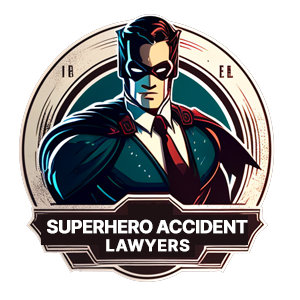Whiplash is a type of injury that occurs when the head is very quickly and forcefully jerked both forward and backward. This issue is very common in a car accident, sports injury, or even a fall. The sudden movement in the head causes the soft tissues that re in the neck to be both stretched and damaged. This leads to not only pain, but stiffness, as well as a limited range of motion.
- Car accidents: The most common cause of whiplash is a car accident, particularly rear-end collisions. The force of the impact causes the head to be jerked forward and then backward, which can damage the soft tissues in the neck.
- Sports injuries: Whiplash can also occur during sports activities that involve a lot of head movement, such as football, soccer, and hockey.
- Physical assault: Whiplash can result from a physical blow to the head, such as a punch or kick.
- Slip and fall accidents: Falls that cause the head to be jerked forward and backward can also cause whiplash injuries.
- Amusement park rides: Whiplash can occur on rides that involve rapid acceleration and deceleration, such as roller coasters.
- Skiing or snowboarding accidents: Whiplash can occur from falling and hitting the head or being hit by another skier or snowboarder.
- Explosion or blast injuries: The intense pressure wave from an explosion can cause the head to be jerked forward and backward, leading to whiplash.
- Motorcycle accidents: The high speeds and lack of protection in motorcycle accidents can make the rider particularly vulnerable to whiplash injuries.
- Horseback riding accidents: Falls or being hit by a horse can cause the head to be jerked forward and backward, leading to whiplash.
- Violent shaking or jolting: Whiplash can occur from violent shaking or jolting, such as during an earthquake or other natural disaster.
It is also important to note that not all of these situations will led to a person having whiplash, but they can be potential risk factors, and it is always recommended to seek medical attention following an accident or a traumatic event.
Symptoms of whiplash may appear immediately after the injury occurred, or it might take several days to manifest. A few common symptoms of whiplash can include neck pain, headaches, dizziness, fatigue, and even cause those to have difficulty concentrating. In some of these cases, people may also experience a numbness or tingling in their arms or hands, as well as a ringing in the ears.
However, the good news is that the majority of whiplash cases can and will heal with time and appropriate the treatment. The primary goal of whiplash treatment is to reduce the pain, inflammation and to also improve the range of motion and function in the neck.
Some type of whiplash treatment options include:
- Physical therapy: exercises that focus on gently stretching and strengthening the muscles of the neck can help reduce pain and improve mobility.
- Chiropractic care: Chiropractors will use hands-on techniques such as adjustments and manipulations to align the spine and ease pressure on the nerves and muscles in the neck.
- Acupuncture: This traditional Chinese medicine technique involves the insertion of thin needles into specific points on the body to promote healing and alleviate pain.
- Massage therapy: Massaging the muscles of the neck can help to reduce tension and inflammation, which can improve the range of motion and alleviate pain.
- Ice and heat therapy: alternating between ice and heat can help reduce swelling and pain. -Medications: Over the counter pain medications like ibuprofen, aspirin, and acetaminophen can be useful in managing pain caused by whiplash.
There are some people who develop whiplash who can also experience psychological symptoms, which include anxiety or depression. In such cases, it’s recommended to also seek counseling and therapy.
It’s also important that you work closely with your health care provider in order to develop a treatment plan that is right and works for you. In most cases, symptoms of whiplash will begin to improve within a few weeks to a couple of months, and most people will make a full recovery.
However, in some rare cases, the symptoms may persist and chronic pain can develop, in these type of situations, further evaluation and intervention might be necessary.
The type of doctors you can go to if you are seeking help for whiplash, include:
- Chiropractor
- Orthopedic Surgeon
- Physical Therapist
- Neurologist
- Pain Management Specialist
- Osteopath
- Primary Care Physician
- Neurosurgeon
- Sports Medicine Physician
- Acupuncturist
Make sure you always are wearing your seatbelt, as prevention is the best cure. Also, make sure that your headrest is properly adjusting wether driving or riding in a vehicle. If you are involved in an accident, it is always a good idea to see a healthcare professional to rule out any injuries, even if you feel like you are okay.

